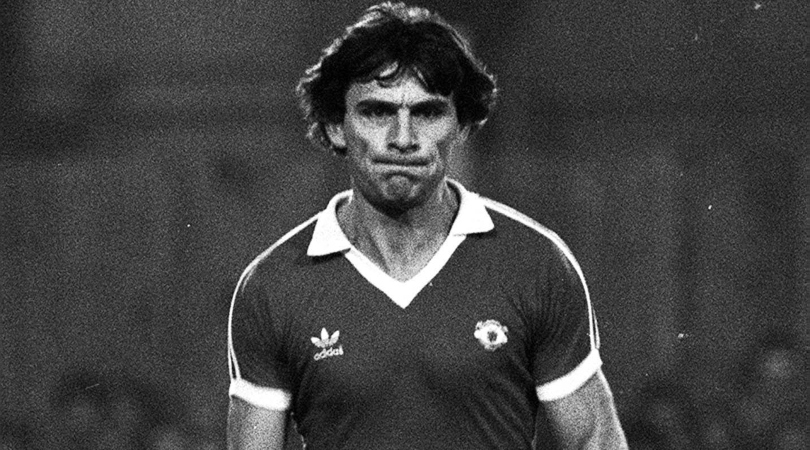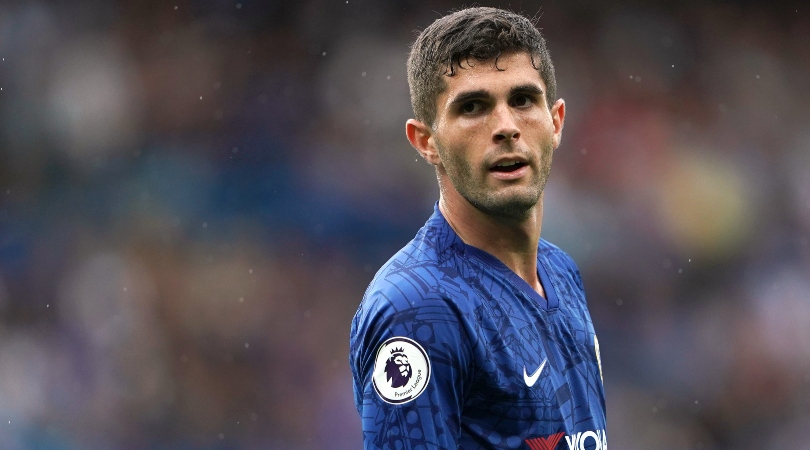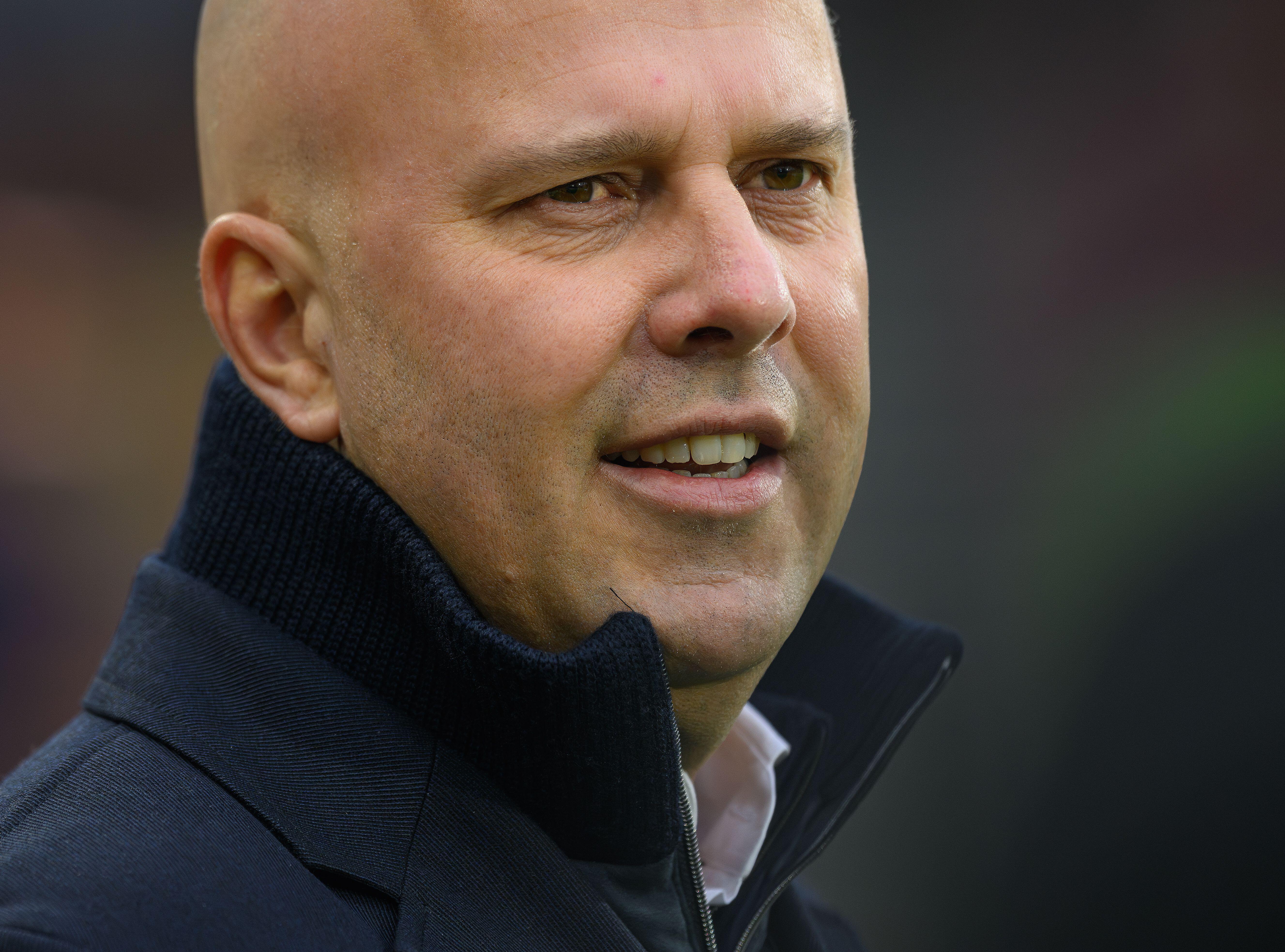Andy Mitten column: How Manchester United signed their first ever foreign player, Nikola Jovanovic
FourFourTwo tracked down Jovanovic to discover how he ended up making the journey from communist Yugoslavia to 1980s Manchester

Summer 1999, and Manchester United are English and European champions. They’re about to play a pre-season in Australia, one the players will especially enjoy, since Sir Alex Ferguson doesn’t travel on it.
For this writer, the long trip meant a stop en route in Indonesia and a minibus ride where the following conversation took place with a young backpacking couple from Slovenia.
“Where are you from?”
“Manchester, England.”
“I used to be coached by a player from Manchester United. Nikola Jovanovic. Do you know him? He lives near us.”
Not really. There was a man who looked like the Incredible Hulk on my first United poster (no, not Joe Jordan), but while I was interviewing United players as a journalist, Jovanovic was not on any radar. Yet he was important, since he was the first player from outside the UK and Ireland to sign for Manchester United. Carlo Sartori may sound Italian, but he was a Collyhurst lad and as Mancunian as Joseph Holt’s beer.
Numbers were swapped with the couple, along with a promise that if United were ever drawn against a team remotely close to Slovenia, we’d visit – and see the former Red Star Belgrade player Jovanovic. A month later, United were drawn with Dinamo Zagreb; a trip not for the faint-hearted, since anti-British and American sentiments were running high in parts of the Balkans.
Get FourFourTwo Newsletter
The best features, fun and footballing quizzes, straight to your inbox every week.
The day before, we went to Ljubljana – the prosperous capital of Slovenia – to meet the former defender, then a 47-year-old coach. Just as on my poster, he was a formidable, towering but friendly figure who was keen to know how his old team-mates were doing.
“How is Jimmy Nicholl?” he asked. “And Sammy McIlroy? Joe Jordan? And Mr [Martin] Edwards?”
Jovanovic signed in January 1980 for a considerable £300,000 fee.
The central defender had been man of the match in both legs for a brilliant Red Star side which had been good enough to beat European champions Liverpool home and away. So impressed was United manager Dave Sexton that he flew to Belgrade to watch the player again against Galatasaray.
“He asked me if I wanted to join United and I said yes,” explained Jovanovic over a Slovenian dish of steak and prawns. “One month later I was in England.”
Sexton didn’t just jump on a plane behind the iron curtain. The football agent Dennis Roach acted as an intermediary and had bought the player’s registration, so claimed to own him. Roach proposed that United should pay his Cyprus company both a transfer fee and a regular service fee while the player was at Old Trafford. The Football Association refused to allow such a deal because it involved paying an agent, which was then against the rules. An alternative arrangement was made.
Jovanovic had several suitors while Yugoslavia was behind the iron curtain, as relatively liberal laws under the country’s communist regime would allow him to move to the west.
“Bayern Munich offered me twice as much as United but I considered United to be one of the best teams in the world,” recalled Jovanovic, who’d played over 300 times for Red Star and was a regular in the Yugoslavia national side. “During the ‘60s and ‘70s, Yugoslavian teams featured seven times in the finals of European club competitions. We were playing the best teams in Europe and beating them. One of those teams was Partizan Belgrade which beat United in the semi-finals of the 1966 European Cup.
“I wanted to move abroad because I wanted some financial security for my family but the idea of United appealed. Having lived in Belgrade I knew the significance of the Munich air crash and then I’d seen Law, Best and Charlton on television.”
Manager Dave Sexton was excited by his new £300,000 signing and said: “This player will amaze you once he’s settled in.”
The other players were quickly impressed.
“We played on an icy training pitch for his first kick about and Nicola was dancing on the ice,” said his captain Martin Buchan. “He was brilliant. I thought, ‘I wonder if Dave Sexton is trying to put a bit of pressure on me?’ because I was negotiating what would be my last United contract.”
Buchan and Lou Macari discussed the new £300,000 signing. Buchan was worried.
“He’s good isn’t he?” he said to Macari.
“‘If he’s worth £300,000,’ said Lou, “Then you must be worth at least £150,000’.”
Jovanovic also started well, scoring on his home debut against Leicester. He soon struck up a positive relationship with manager Dave Sexton.
“He was a good man and a good coach. But he was very quiet and occasionally the players weren’t able to understand him. Sometimes the games were very boring and the fans of Manchester United didn’t like that. That was a bad period for the club all round, though. The manager [Sexton] was under pressure. I didn’t really understand the politics of the club. The chairman died and the team was a long way behind Liverpool. United were a big club with talented players but Liverpool were dominating.”
There were other reasons why Jovanovic never really settled.
“The football was very different to what I had known at Red Star. It was long balls and not attractive – apart from the football played by Liverpool and Ipswich Town, who were the best teams. And I was played out of position.”
“Nikki was a big strapping fellow and most people knew him as a central defender,” remarked one seasoned watcher, former United player Albert Scanlon, “But often Dave played him in midfield. Perhaps putting defenders in advanced positions was part of his precious coaching theory, but I could never agree with it. Nikki wasn't a bad footballer and was comfortable on the ball and talented enough to use it, but United did him a disservice by playing him in the wrong role. He was on a hiding to nothing.”
“Red Star would have easily beaten United,” said Jovanovic, “we were regularly reaching the semi-finals of European competitions and we had a world-class coach in Miljan Miljanic who would coach Real Madrid. I went from him to Tommy Cavanagh [the principal trainer]. There was a big difference. I don’t like to criticise the people I’ve worked with, but the man didn’t know what he was doing. He knew nothing about football. He had some talented players but he didn’t know how to get them to work as a team.”
Cavanagh wasn’t everyone’s cup of team. Sammy McIlroy described him as “a strong-minded Scouser. I remember poor Nicola Jovanovic not understanding a word he said. He hounded Gary Bailey too.”
Keeper Bailey also thought that United’s approach didn’t get the best out of the Yugoslav.
“He was a lovely guy and a very, very good footballer – better than anyone else there in defence. He’d played for a brilliant Red Star Belgrade team yet entered a screaming, shouting culture that destroyed so many good talents. He took stress under the Cavanagh era. Dave Sexton was such a mild and meek lovely person who wasn’t involved in the shouting, but he was manager and was ultimately responsible. I often envied players at Arsenal under Don Howe. To listen to him and Bobby Robson talk about tactics with England was fascinating because we never had that at Old Trafford.”
Jovanovic spent more time with another coach, United goalkeeping legend Harry Gregg.
“He was my good friend and told me that I had come to the club at the wrong time because there were changes at the club. There’s nothing a player can do about that.”
Jovanovic wasn’t helped by two bad injuries he suffered, as well as military service.
“I had had a bad time at Red Star when I was out for a year with a cartilage injury,” he said. “And as soon as I recovered from that I had to go in the army for one year. But at United I was 28 with a bad back. It was hard to recover from this.”
Despite this, he has fond memories of Old Trafford.
“The people were very friendly and Manchester was a big club like Red Star, but the technical level was much lower,” he said. “The coaching methods were not advanced and the players drank too much alcohol to be professional athletes.”
The final verdict should go to his captain Buchan. “Nicola was a lovely lad. He was six foot three, but shrunk to four foot nine when he went to head the ball.”
Jovanovic predictably saw his contract cancelled in November 1982. He then drove his wife, a model, back to Belgrade in the BMW United lent him. Neither he nor the car ever returned.
While you're here, why not take advantage of our brilliant subscribers' offer? Get the game's greatest stories and best journalism direct to your door for only £9.50 every quarter. Cheers!
NOW READ…
REVEALED How the Premier League table REALLY looks now
QUIZ Can you name the 32 players with most touches in the Premier League this season?
GUIDE Premier League live stream best VPN: how to watch every game from anywhere in the world

Andy Mitten is Editor at Large of FourFourTwo, interviewing the likes of Lionel Messi, Eric Cantona, Sir Alex Ferguson and Diego Maradona for the magazine. He also founded and is editor of United We Stand, the Manchester United fanzine, and contributes to a number of publications, including GQ, the BBC and The Athletic.

